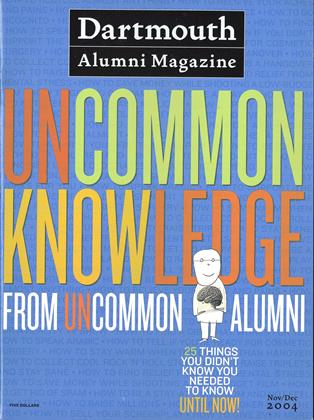Checking in with JOHN CHITTICK, who has spent the past five years walkingnearly 4,000 miles in 65 countries to raiseteenagers'awareness of AIDS.
Why do you focus on teens?
"As executive director of TeenAIDS, a Boston-based nonprofit I founded to support my global walks and help further spread information on AIDS prevention, I'm aware that teens believe they are invulnerable to an adult problem like AIDS. But they are not invincible and need honest information under some adult guid- ance. The Joint United Nations Program on HIV/AIDS (UNAIDS) finds 50 percent of all new cases of HIV globally occur among young people, ages 15 to 24. The Centers for Disease Control and Prevention finds 25 percent of all new cases of HIV in America occur in teens."
Which messages resonate most with teens?
"Most teens do not want adults to tell them how to live their lives. Instead, I tell them that if they love a friend (and all do) it is their responsibility to help save their friends by telling them the medically accurate facts. Teens can handle the truth and can be trusted to spread the information to peers—not because they have to, but because they want to do it—and that kind of peer education is our most effective tool in preventing HIV."
Did you discover anything that flies in the face of conventional wisdom regarding HIV/AIDS education?
"Teens do not become more sexually active after being exposed to HIV prevention and sex education. Just the reverse is true: Educated teens tend to be more monogamous when they begin sex."
What sort of difficulties did you encounter?
"At times I found myself stranded—in Nigeria, the Netherlands, Australia and South Africa—hoping that money would come in. Donor support, which included the generosity of 35 Dartmouth classmates, always was forthcoming, even if irregular."
What are the most valuable lessons you've learned?
"That if you believe in a cause passionately enough, you will have the energy to be a positive force in helping to make things right."
What's next up for you and TeenAIDS?
"My new vision for this effort to educate teens revolves around providing interactive training through our Web site, www.teenaids.org. In 1998 this kind of outreach was impossible—but by 2004 it became obvious that most teens are getting globalized and since e-mail addresses are free, cyber cafes are everywhere in the world with relatively inexpensive access to the Internet. We will offer live chats and monthly training to others; all materials can be freely downloaded in many languages."
 View Full Issue
View Full Issue
More From This Issue
-
 Cover Story
Cover StoryUncommon Knowledge From Uncommon Alumni
November | December 2004 By Jennifer Wulff ’96 -
 Feature
FeatureThe Producer
November | December 2004 By Molly Selvin -
 Article
ArticlePresidential Range
November | December 2004 -
 Sports
SportsThe Professional
November | December 2004 By Mike O'Connell ’65 -
 Interview
Interview“A Time of Living”
November | December 2004 By Lisa Furlong -
 Alumni Opinion
Alumni OpinionHarpooning a Liberal
November | December 2004 By Dinesh D’Souza ’83







